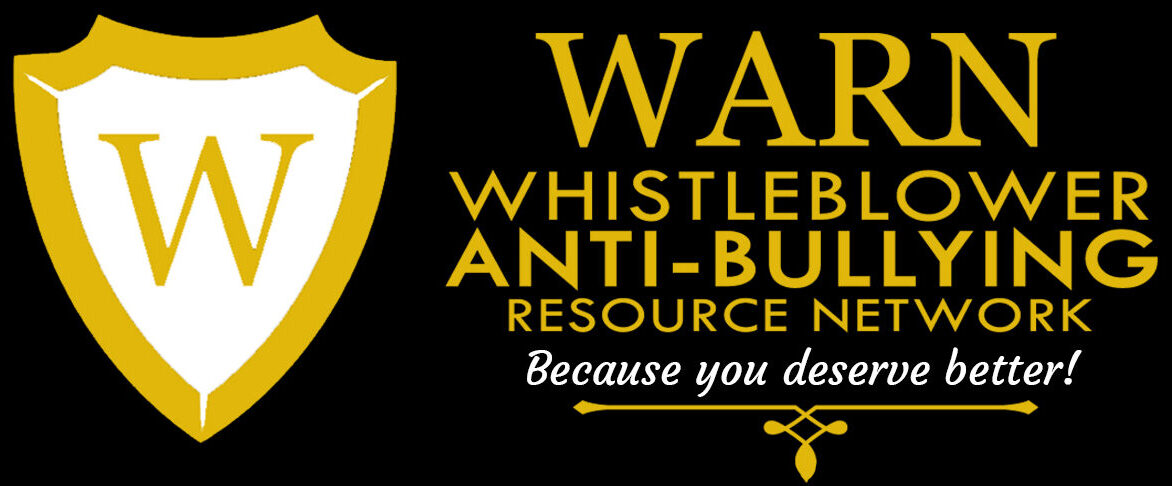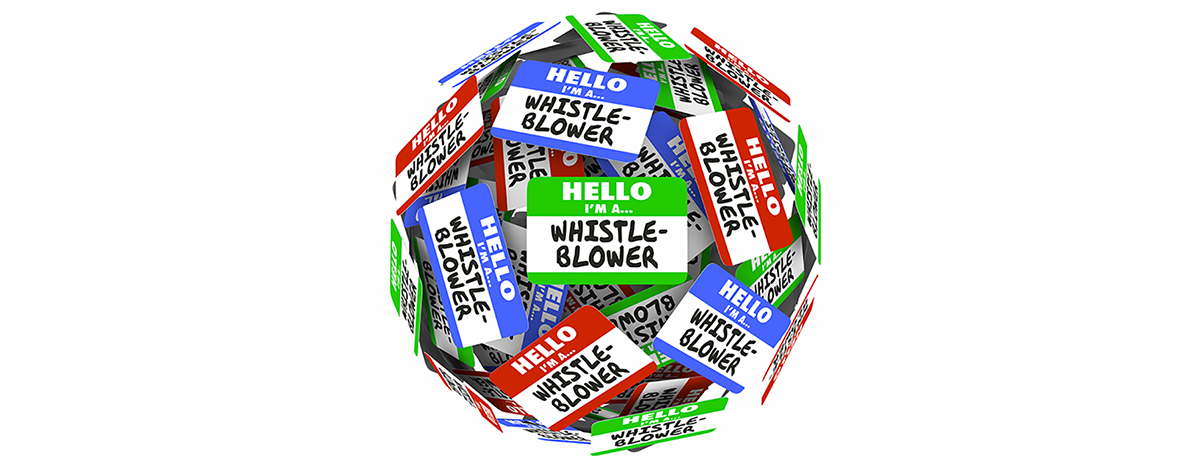White Paper on Whistleblowing in America
By Shenandoah Titus, Esq.
Issue – Whistleblower Protection
I am a whistleblower attorney. My research interests involve whistleblower law and the impact that workplace abuses such as bullying, harassment and retaliation can have on the emotional, psychological, physical and spiritual health of whistleblowers. Moreover, I explore the impact of the aforementioned abuses, within the federal setting, on national security, as that is for the most part my professional background coming from the U.S. Department of Homeland Security (DHS), Washington, DC Headquarters.
One of the most pressing issues in whistleblower law and public policy concerns our duty to provide safe, non-hostile work environments that facilitate the ability of employees to function without apprehensions of retaliation. On Independence Day, July 4, 2018, I founded and now serve as Chief Counsel of the Whistleblower Anti-Bullying Resource Network (WARN), which is a national public interest law office dedicated to helping public servants focus on their mission within a healthy work environment.
One of the most memorable books that I have read on the issue of whistleblowing is titled: Whistleblowers: Broken Lives and Organizational Power (Cornell University Press, 2001). The author aptly captures the emotional toll of whistleblowing in his preface:
One of the first things I ever heard a whistleblower say was, I’ve learned two things from being what you might call a professional whistleblower. When you go out in public, don’t cry, and don’t talk like your hair is on fire. If you do, no one will listen. It makes them uncomfortable.
The whistleblower who said this was at a conference on the future of whistleblowing. Not a single panel had a current whistleblower on it, though at least a dozen whistleblowers were in the audience. Several asked why there were no whistleblowers on the panels.
The answer, I believe, is that even the supporters of whistleblowers are afraid of the tears, the screams, the pain, and the horror; this fear teaches the whistleblower to subvert these experiences in the name of effective lobbying. There is a time and a place for that, of course, but I think we will not understand what is happening in our society until we listen to the tears, the screams, the pain, and the horror of those who have crossed a boundary they did not even know exists.
I referred to this book as being “one of the most memorable,” yet that is not entirely a compliment to the author. As a federal whistleblower, I can personally relate to the pain and anguish referenced above. Yet what I found particularly memorable, with vehement objection, was the author’s characterization of whistleblowing as “narcissism moralized.” To associate whistleblower heroes (an accolade that I do not ascribe to myself) with the psychological disorder of “narcissism” – even of the “moralistic” sort, is beyond the pale and demonstrates a fundamental lack of true understanding of what it means to be a whistleblower.
These are, after all, the men and women who will risk losing everything to expose the truth. As an African American and Native American man, I wish there had been more public health whistleblowers – morally narcissistic or not – who might have prevented the historically atrocious experimentation on African Americans, infamously known as the Tuskegee Experiment. What some may regard as “moralized narcissism,” I regard simply as spiritual courage – the discernment between right and wrong, and the faith – not necessarily religious- based – to do what is right.
There is growing literature in the proverbial marketplace of ideas on many aspects of whistleblowing – the personal toll emotionally, physically, financially; the legal and political issues associated with whistleblower protection; concerns, as I alluded to earlier, regarding the potential impact on national security if whistleblowers are distracted from the mission due to realistic trepidations of management retaliation.
Resolution
I propose a three-pronged approach to addressing the key issue of whistleblower protection:
Public Enlightenment:
We must educate the public as to the value and utility of whistleblowers to public safety and national security. Corporations and other institutions, including the government, will seek to portray whistleblowers as “traitors.” That, of course, is self-serving to the institution engaged in wrongdoing and coverups. Unless we effectively dispel unsavory depictions of whistleblowers, there will never be the political will to bring about change.
Stronger Legislative Protections:
We have whistleblower protection laws on the books. However, they are not far-reaching enough. Furthermore, our current laws are often too convoluted and thus require more simplification, beginning with a clearer a more inclusive definition of who qualifies as a whistleblower warranting protection from management retaliation.
Independent Enforcement:
Whistleblower protection laws are meaningless if those who are given key whistleblower protection jobs (and “given” is the operative term) are political cronies, loyal to the management bullies who retaliate against whistleblowers. There must be independent oversight of whistleblower protection systems if we are to even approximate a fair and just environment where truth is allowed to flourish. And where truth does not flourish, it will surely perish.
I and my whistleblower colleagues across the nation are working every day to better educate the public, and serve as advocates for whistleblowers nationwide. We need selfless, valiant men and women to sound the alarm in the interest of the public good. America needs whistleblowers!
Shenandoah Titus, Chief Counsel
Whistleblower Anti-Bullying Resource Network (WARN)
Frequently Asked Questions

